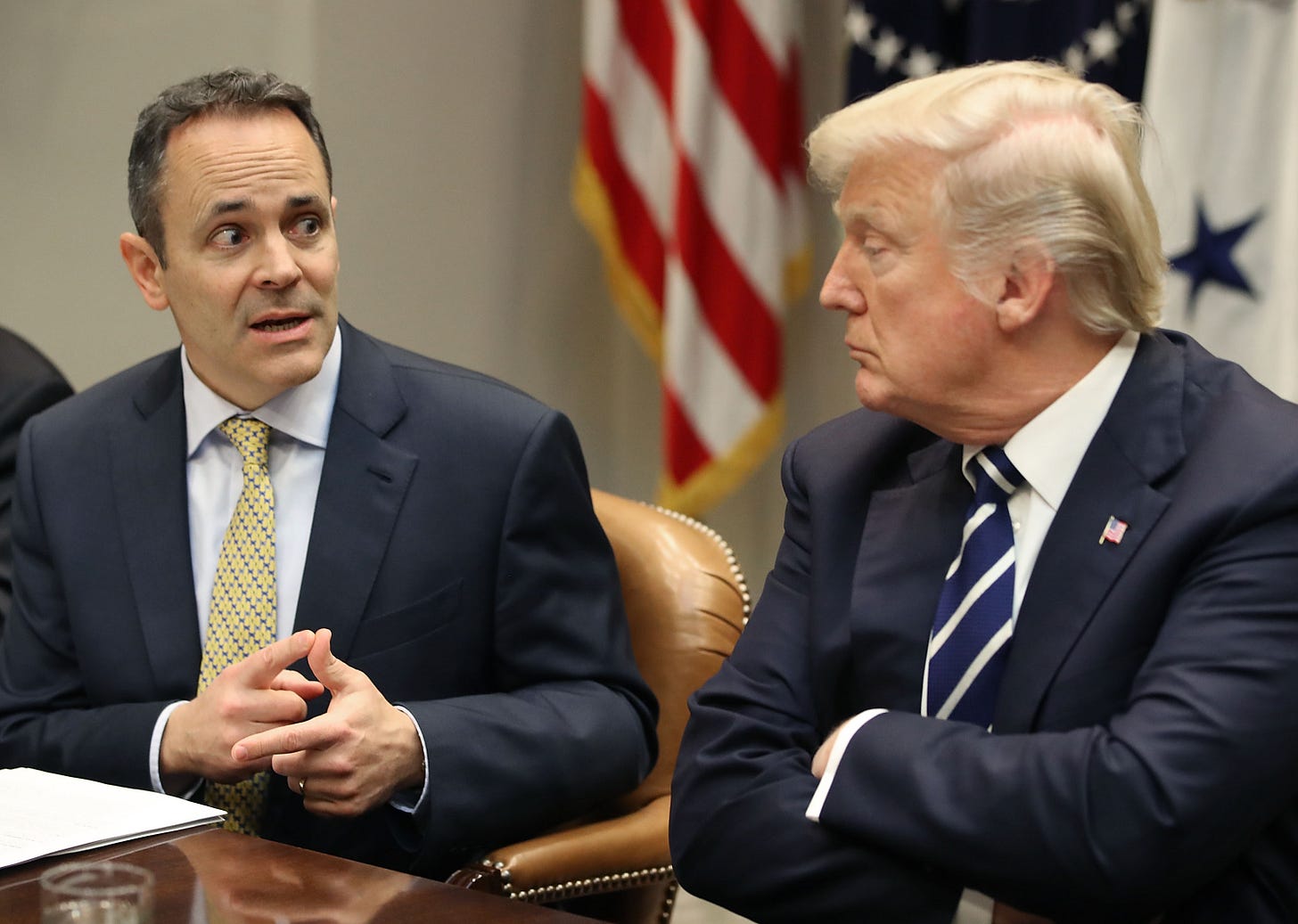Trump Hurts Downballot Republicans

A lot of the Republican happy talk last week was about how, sure, the Philly suburb elections weren't great. And yeah, the Virginia elections weren't super awesome either, but that Republicans down-ticket in Kentucky did really well.
And that you can discount incumbent governor Matt Bevin's loss because he was a uniquely unpopular figure.
That's true!
Bevin took 48.8 percent of the vote. This meant that there was a lot of ticket-splitting because he ran far, far behind the other statewide Republican candidates.
How far? Bevin was -8 points behind the Republican candidate for attorney general. He was -10 points behind the ag commissioner; -7 points behind the auditor; -4 points behind the secretary of state and -12 points behind the Republican who won the state treasurer's office.
A lot of Trump-defending Republicans took this as a positive result. But I don't understand why.
I'm willing to accept the fact that Matt Bevin was a uniquely unpopular figure in Kentucky politics, with a hard-core base of supporters who loved him for what he was, but a larger, harder-core base of voters who very much did not like him.
Does that sound like anyone else you know?
There's this weird myth that Donald Trump helped Republicans in 2016. This is false. Trump ran behind most state-level Republicans. In Alabama, for instance, Trump ran -3 points behind Richard Shelby's Senate reelect campaign. He ran -5 points behind John McCain in Arizona; -3 points behind Marco Rubio in Florida; -9 points behind Chuck Grassley in Iowa.
I could go on and on, but what you need to realize is this: Trump ran behind the Republican senate candidate in 21 states in 2016. This includes a lot of big, important states where the election was close: Georgia, Arizona, Florida, Colorado, North Carolina, Ohio, Pennsylvania, Wisconsin.
Trump only outperformed the GOP senate candidate in 12 states, and most of those were non-competitive races where the Republican party fielded on a token candidate (for instance, in Hawaii, Connecticut, Illinois, Oregon, Washington, and New York). The only close race where Trump outperformed the Republican senate candidate was in Missouri.
So understand this correctly: Trump did not have coattails in 2016 that swept Republican candidates into office with him. He was a millstone who was carried over the finish line by strong Republican performances further down the ballot in key states.
Why were those state-wide Republican candidates not sunk by having Trump at the top of the ticket?
Because, if you will think back to the closing weeks of 2016, they did not "hug" him.
The lesson of Matt Bevin is precisely the opposite of what Trumpy Republicans think it is.
The real lesson is that there are swing voters and ticket splitters who will still be willing to vote for down-ballot Republicans provided there's enough space between these candidates and the tremendously unpopular Republican at the top of the ticket.
And they might do even better if the party would cut the millstone loose. Because Donald Trump didn't add votes to their coalitions. He subtracted them.


